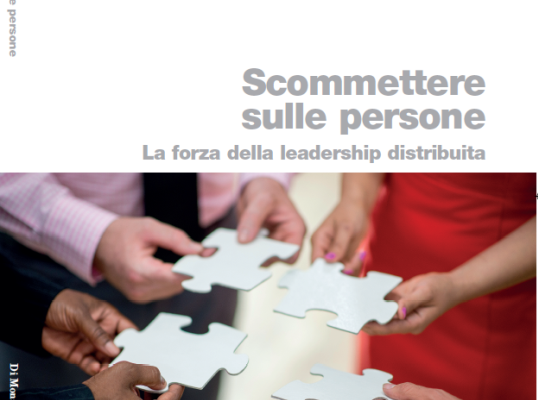
On April 27th 2017 at 6 p.m. there is a meeting in Circolo dei Lettori (Via Bogino, 9 – Turin) about the topic “Betting on people. The strength of the distributed leadership”. Roberto Di Monaco and Silvia Pilutti will present their book (published by Egea).
During this presentation they will also talk about the many strategic initiatives the University of Turin is promoting to support the innovation 4.0 of the businesses: the high demand of research and education goes beyond the technical aspects of innovation – the business performance must be improved and, to do this, all the disciplinary competence is required.
Introduction
Silvio Aime, vice-dean for the scientific research at the University of Turin
Sergio Scamuzzi, vice-dean for communication at the University of Turin
Others will take the floor:
Marcello Bogetti, director of LABNET
Marcello Bugari, responsible for ACADEMY Reale Mutua Group
Andrea Franco, vice-president of HR Magneti Marelli Spa
Maurizio Gattiglio, Gruppo Prima Industrie
Guido Stratta, vice-president of HR Enel Spa.
How to promote innovation today in the small- and medium-sized enterprises?
Which cultural initiatives can optimise the impact on the competitiveness of the technologies 4.0?
This book is about research, experience and discussion of the most recent contributes to the international literature and suggests a management and leadership model which focuses on the creation of cultural and social bases for innovation. The technological investments are important but are not enough to create innovative business models. To be competitive, it is necessary to invest in people, improve their expertise, the quality of the social processes in the business and the cooperation levels. For this reason, the leadership model must be modernized.
The theory of the “distributed” leadership could make the business give value to the knowledge of its talented people and could improve the practicality of the instruments used to cooperate and to manage knowledge.
In this book other traditional business strategies are suggested: performance, expertise, motivation, monitoring activities, education, avoiding hierarchies and charismatic leaders. At the end of the book you can find a guide for the evaluation of the processes carried out to improve the organisation of the share capital in favour of innovation.

Trackbacks for this post